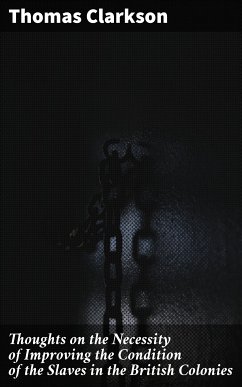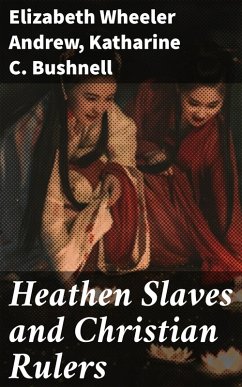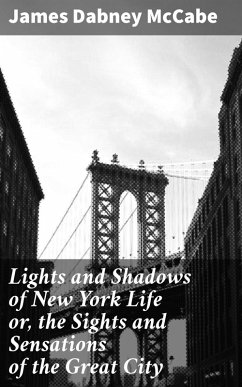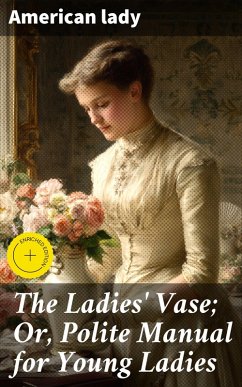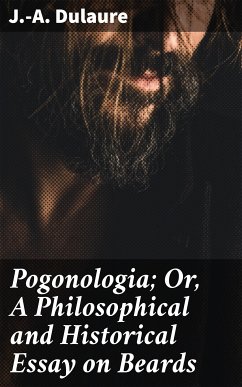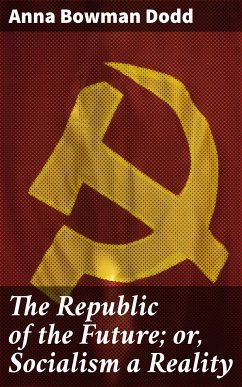
Cannibals all! or, Slaves without masters (eBook, ePUB)
Enriched edition. A Bold Critique of Slavery and Capitalism in the Antebellum South
Kommentar: Glover, Jillian / Redaktion: Good Press

PAYBACK Punkte
0 °P sammeln!
In "Cannibals All! or, Slaves Without Masters," George Fitzhugh presents a provocative defense of slavery, challenging contemporary economic and social philosophies. Written in 1857, the book employs a polemical yet engaging literary style, combining sociological analysis with fiery rhetoric to argue that slavery represents a more humane and just system than free labor. Fitzhugh's work emerges from the antebellum period's heated debate over slavery, revealing a society deeply divided over moral and economic grounds. His comparisons between the lives of enslaved individuals and wage laborers of...
In "Cannibals All! or, Slaves Without Masters," George Fitzhugh presents a provocative defense of slavery, challenging contemporary economic and social philosophies. Written in 1857, the book employs a polemical yet engaging literary style, combining sociological analysis with fiery rhetoric to argue that slavery represents a more humane and just system than free labor. Fitzhugh's work emerges from the antebellum period's heated debate over slavery, revealing a society deeply divided over moral and economic grounds. His comparisons between the lives of enslaved individuals and wage laborers offer a critical lens through which to understand the complexities of labor ethics and human rights during this turbulent era in American history. George Fitzhugh, a Southern social theorist, was deeply influenced by his own experiences and the agrarian culture of the South, which shaped his views on class and race. His advocacy for slavery as a 'positive good' stems from a belief in paternalism and societal hierarchy, reflecting a broader Southern intellectual tradition. Fitzhugh's writings were contentious, forcing readers to confront uncomfortable truths about their own moral standings and the socio-economic fabric of their society. This book is essential reading for anyone interested in American history, sociology, and the moral philosophy of labor. Fitzhugh's arguments, while deeply controversial, invite readers to critically engage with historical perspectives on freedom, social justice, and the ethical dilemmas posed by human exploitation, making it a crucial text for understanding America's past. In this enriched edition, we have carefully created added value for your reading experience: - A succinct Introduction situates the work's timeless appeal and themes. - The Synopsis outlines the central plot, highlighting key developments without spoiling critical twists. - A detailed Historical Context immerses you in the era's events and influences that shaped the writing. - A thorough Analysis dissects symbols, motifs, and character arcs to unearth underlying meanings. - Reflection questions prompt you to engage personally with the work's messages, connecting them to modern life. - Hand-picked Memorable Quotes shine a spotlight on moments of literary brilliance. - Interactive footnotes clarify unusual references, historical allusions, and archaic phrases for an effortless, more informed read.
Dieser Download kann aus rechtlichen Gründen nur mit Rechnungsadresse in A, B, BG, CY, CZ, D, DK, EW, E, FIN, F, GR, H, IRL, I, LT, L, LR, M, NL, PL, P, R, S, SLO, SK ausgeliefert werden.






